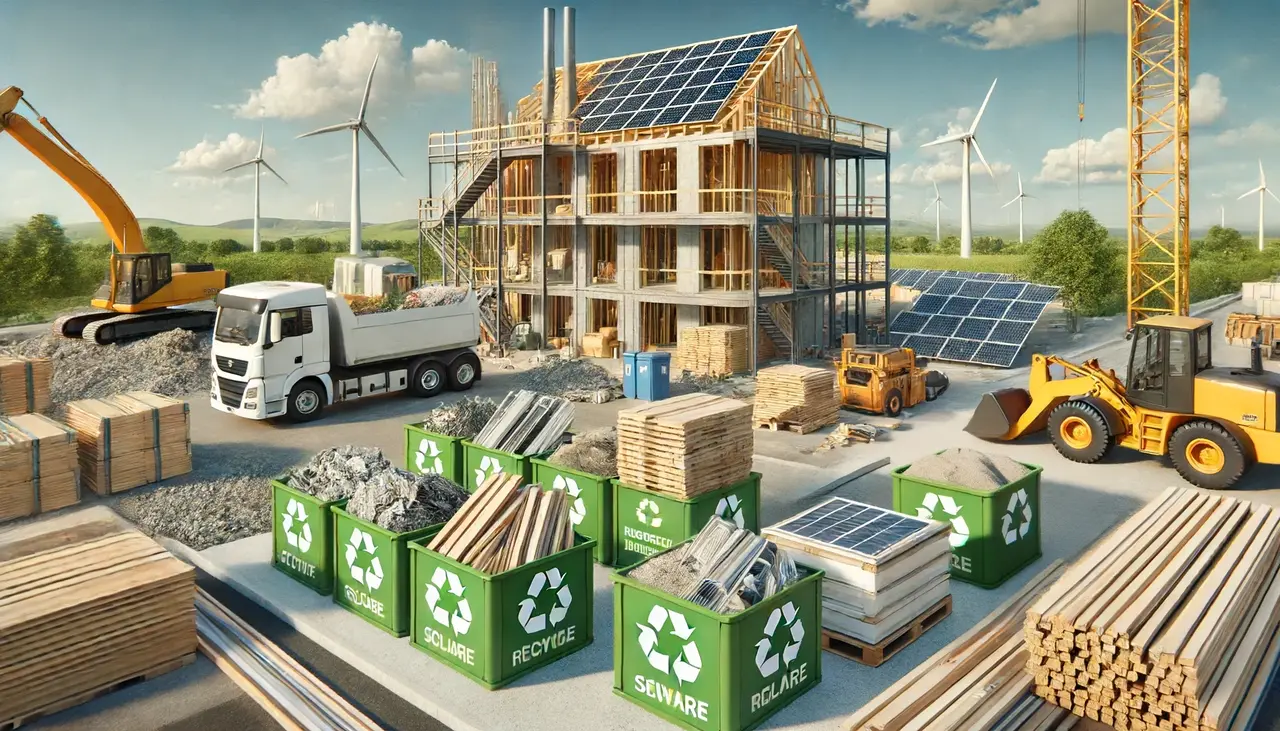Embark on a journey towards sustainable construction practices with innovative techniques that significantly reduce construction environmental impact. Discover how eco-friendly materials, efficient waste management solutions, and maximizing energy efficiency can transform your next project into an environmentally conscious endeavor.
A Sustainable Approach to Construction
Embracing sustainability in construction involves a comprehensive approach that aims to minimize the environmental impact of building projects. From the initial planning stages to the final construction phase, every decision counts towards creating a greener and more eco-friendly outcome.
Implementing sustainable practices not only benefits the environment but also contributes to long-term cost savings and enhances the overall quality of the construction project. By prioritizing sustainability, construction companies can align with global efforts to reduce carbon emissions and preserve natural resources for future generations.
Incorporating green building techniques, such as using renewable energy sources and optimizing water and energy efficiency, can significantly reduce the environmental footprint of a construction project. Sustainable construction is not just a trend but a vital necessity for a more sustainable future.
Utilizing Eco-Friendly Materials
Choosing eco-friendly materials is a fundamental aspect of minimizing construction environmental impact. Opting for sustainable materials that are ethically sourced, recyclable, and energy-efficient can drastically reduce the carbon footprint of a construction project.
Materials such as recycled steel, reclaimed wood, and low-impact insulation not only support sustainable practices but also contribute to creating healthier indoor environments. By prioritizing eco-friendly materials, construction projects can achieve a harmonious balance between structural integrity and environmental responsibility.
Investing in eco-friendly materials may initially require a higher investment, but the long-term benefits, both in terms of environmental impact and operational efficiency, far outweigh the initial costs. Sustainable materials not only reduce waste but also promote a more circular and regenerative approach to construction.
Efficient Waste Management Solutions
Efficient waste management is essential for reducing the environmental impact of construction activities. By implementing strategies to minimize waste generation, recycle materials, and responsibly dispose of construction debris, projects can significantly decrease their carbon footprint.
Adopting practices such as waste segregation, on-site recycling, and partnering with certified waste management companies can help construction sites become more environmentally sustainable. Effective waste management not only benefits the environment but also enhances the overall efficiency and safety of construction operations.
Reusing materials, such as salvaged bricks or repurposed fixtures, not only reduces waste but adds a unique character to construction projects. By prioritizing waste reduction and recycling, construction companies can set a positive example for sustainable practices within the industry.
Maximizing Energy Efficiency
Maximizing energy efficiency is a key component of minimizing the environmental impact of construction projects. By incorporating energy-efficient design elements, utilizing renewable energy sources, and integrating smart building technologies, projects can reduce their energy consumption and carbon emissions.
Strategies such as passive solar design, high-efficiency HVAC systems, and energy-efficient lighting solutions can significantly lower the energy demands of buildings. Implementing innovative energy-saving techniques not only reduces operational costs but also mitigates the environmental impact associated with energy consumption.
Investing in sustainable energy solutions, such as solar panels or geothermal heating systems, can provide long-term environmental benefits while improving the overall sustainability performance of construction projects. By prioritizing energy efficiency, construction companies can contribute to a greener and more sustainable future.
By implementing these innovative methods to minimize construction environmental impact, you can pave the way for a greener future in the construction industry. Every step towards sustainability counts, shaping a brighter tomorrow for both the environment and future generations.


